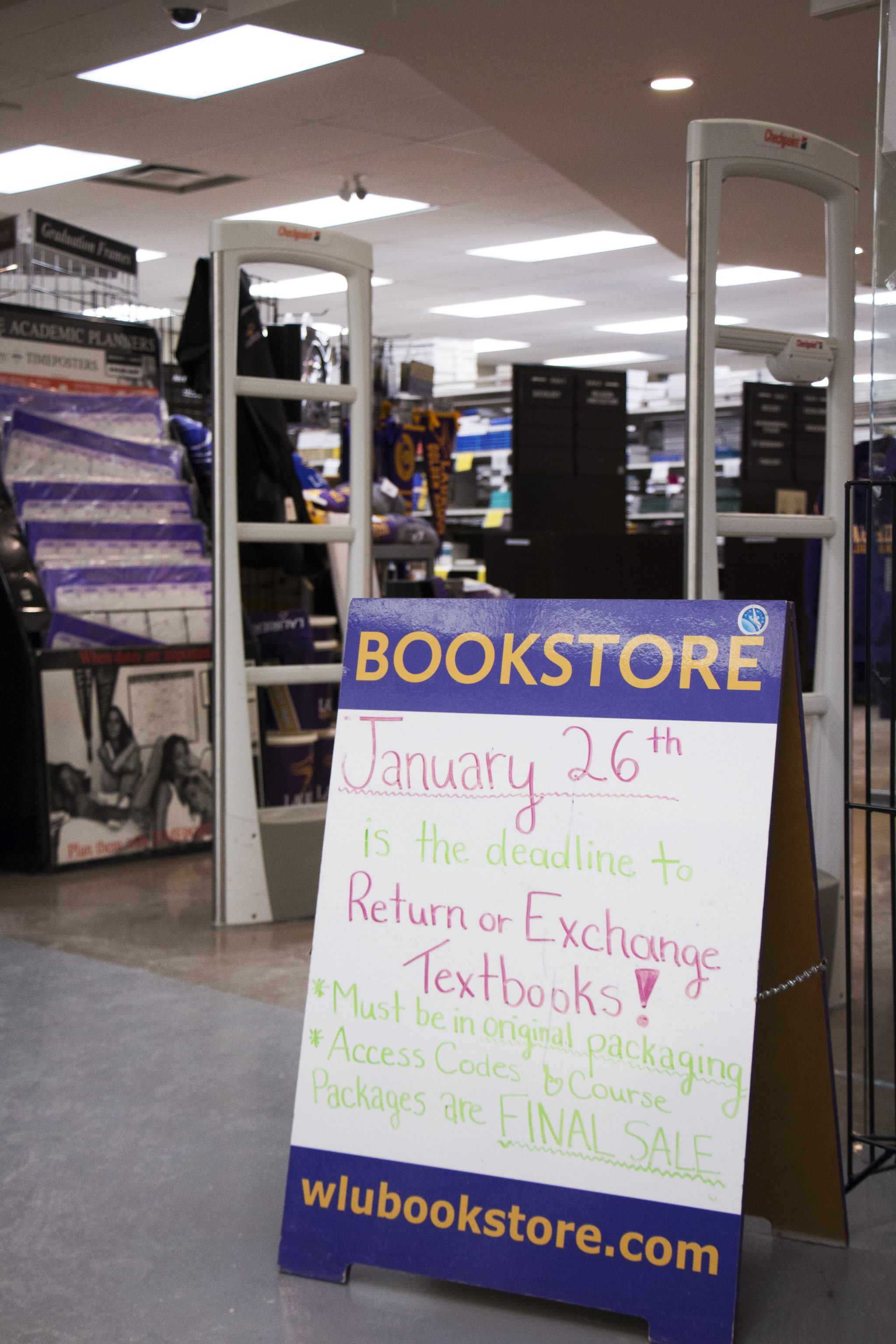#textbookbroke campaign targets steep costs of textbooks


Jan. 15 marked the first day of this year’s local advocacy week for the #textbookbroke campaign which will conclude this Friday.
To find a solution to mitigate the large sum of money students spend every year on textbooks, the Ontario Undergraduate Students Alliance (OUSA) and students at Laurier have joined the #textbookbroke campaign.
“We know textbooks are very expensive and students can’t afford to pay for textbooks especially when they have to pay for their own rent or groceries,” Stephanie Bellotto, vice-president of university affairs, said.
The #textbookbroke campaign is collecting students’ receipts online to see how much money students are spending on textbooks at Laurier this semester. Students can tweet with the #textbookbroke to share their spending.
Currently, there are no classes at Laurier that use OERs for course material, although this campaign hopes to teach Laurier what OERs are and how to create more educational resources. OERs are a new concept and differ from the traditional online resources provided by Laurier because they are publicly accessible.
“So far we have seen a lot of students who would rather spend [their money] on rent or groceries and tuition,” Bellotto said.
The solution to highly priced textbooks so far has been the development of Open Educational Resources (OERs). OERs are free to the public through the eCampus Ontario website and contain educational resources that are hoping to replace textbooks.
“It’s more about teaching faculty what it is and how to create them, but most primarily we need funding for it,” Bellotto said.
Last summer announced the opening of eCampus Ontario funded by the government to provide students with access to free educational resources such as textbooks and other course materials.
“The best thing to do it tweet us a receipt at the Students’ Union and #textbookbroke, or talk to [your] faculty about OERs.”
“Since the government put $1 million towards OERs in Ontario for eCampus, students have already saved about $200,000 with professors that use them,” Bellotto said. “Because of that, we’re trying to push [that] every school should be using these.”
There are currently about 400 OERs available, ranging from Indigenous to French materials and more. Although the campaign is working to advocate in order to gain more funding and make these resources applicable to different fields.
All of the Universities that are a part of the OUSA are running the #textbookbroke campaign at this time to advocate for more public and free resources, including Western, Brock, Waterloo, Queens, Trent, McMaster and Laurentian.
“What we’re doing here on my end at the University Affairs department is hosting a local advocacy week where local representatives are coming here to connect with students,” Bellotto said. “[Students] get to advocate now to politicians on the work they are doing.”
Currently, there are no classes at Laurier that use OERs for course material, although this campaign hopes to teach Laurier what OERs are and how to create more educational resources. OERs are a new concept and differ from the traditional online resources provided by Laurier because they are publicly accessible.
“It is open to everybody,” Bellotto said. “Say Western starts creating an OER and they put it on the [eCampus] library, someone from Laurier can also access it as well.”
The future of eCampus and OERs have yet to be determined and will be affected by the upcoming provincial election in June.
All students are invited to also advocate for the #textbookbroke campaign.
“The best thing to do it tweet us a receipt at the Students’ Union and #textbookbroke, or talk to [your] faculty about OERs,” Bellotto said.

